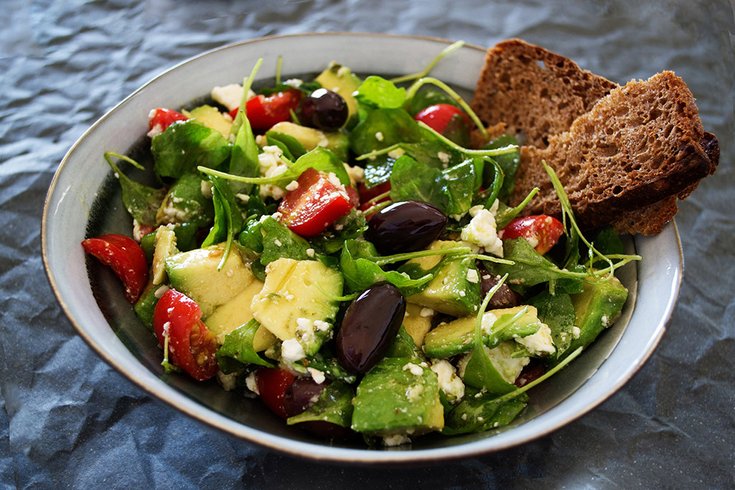
February 08, 2019
 Photo by Dana Tentis/from Pexels
Photo by Dana Tentis/from Pexels
A Mediterranean diet, with its focus on vegetables, fruits, nuts, seeds and legumes, is one of the best for a healthy gut.
Editor's note: Liz McMahon, a Philadelphia-based registered dietitian nutritionist, begins a monthly column today for PhillyVoice with a focus on gut health. She offers virtual nutrition counseling at her website, www.lizmcmahonnutrition.com.
• • •
Keto, Paleo, Mediterranean, Vegan … it seems like every year we’re hearing about a new diet that is the diet we should be following. Whether for weight loss, blood sugar management or cardiovascular health, there’s a diet out there. But what effect do these diets have on our gut health?
First off, let’s clarify “gut health.” Your gut, or gastrointestinal tract, is home to a microbiome that contains trillions of microorganisms (including at least 1,000 known strains of bacteria, in addition to fungi and viruses). Your gut microbiome influences your health daily. So what should we eat to optimize that microbiome?
• Anything with fiber. Fiber is found in plant-based foods that help keep you feeling full and move things along in your digestive track. It can’t be digested by human bodies but certain types of fiber act as food for the bacteria in our intestines. What foods contain fiber? Vegetables, fruits, nuts, seeds, beans and whole grains (to name a few).
• Prebiotics. They are a specific type of fiber that acts as food for your bacteria, which then produces nutrients for your colon. Some prebiotic foods are garlic, onion, bananas, oats and flaxseed.
• Polyphenols. Have you heard of antioxidants? Polyphenols are a sub-category of antioxidants that act like a prebiotic for your microbiome. Your bacteria then turn these polyphenols into metabolites that you absorb in your body. You can find polyphenols in elderberry, blueberries, olives, hazelnuts, dark chocolate and red wine.
• Probiotics. Otherwise known as the “good bacteria”. Studies vary on what probiotics (if any) people should take and the FDA doesn’t even regulate them. Your best bet is to consume fermented foods that are rich in probiotics, like yogurt, kefir, kimchi, sauerkraut and kombucha. The amount of “good bacteria” you get in each of these products will vary, so be sure to get a good variety.
• Variety. Our microbiome loves variety because all of the different bacteria in our gut require a mix of nutrients. So include different-colored fruits and vegetables, herbs and spices, legumes and whole grains.
So which of the ever-expanding list of diets meets this healthy gut criteria? I think that most of the diets mentioned can still provide you with a healthy gut if you’re focusing on the plants.
Liz McMahon, R.D.N., works as a clinical dietitian for a Philadelphia hospital. A specialist in gut health, she currently practices in an intensive care nursery and GI clinic. She can be found at www.lizmcmahonnutrition.com.
A vegan diet (if done right), includes lots of plants-based foods and probiotic-friendly foods like kimchi and tempeh.
Paleo (eating like our ancestors) misses the boat by excluding so many fiber-containing foods (whole grains, legumes) but definitely encourages lots of vegetables. While I don’t agree with eliminating whole food groups (as called for by some of these diets), you can still include a variety of vegetables, which contain fiber, probiotics and polyphenols. The problem with the diets that exclude whole food groups is you may miss out on variety, which is crucial to gut health.
The mediterranean diet offers the most gut-friendly way of eating of those I've listed here. It focuses on lots of vegetables, fruits, nuts, seeds and legumes. It’s also full of polyphenols, like olives and red wine. It also encourages you to limit your amount of processed foods and refined sugars, which can be detrimental to gut health if eaten in excess (both of these groups are very inflammatory).
As with most things related to nutrition, choosing the best diet for gut health ends with “well it depends….” The average healthy person (without any gastrointestinal diseases) should choose a diet that’s mostly plants, includes some probiotics and gives your microbiome a variety.
